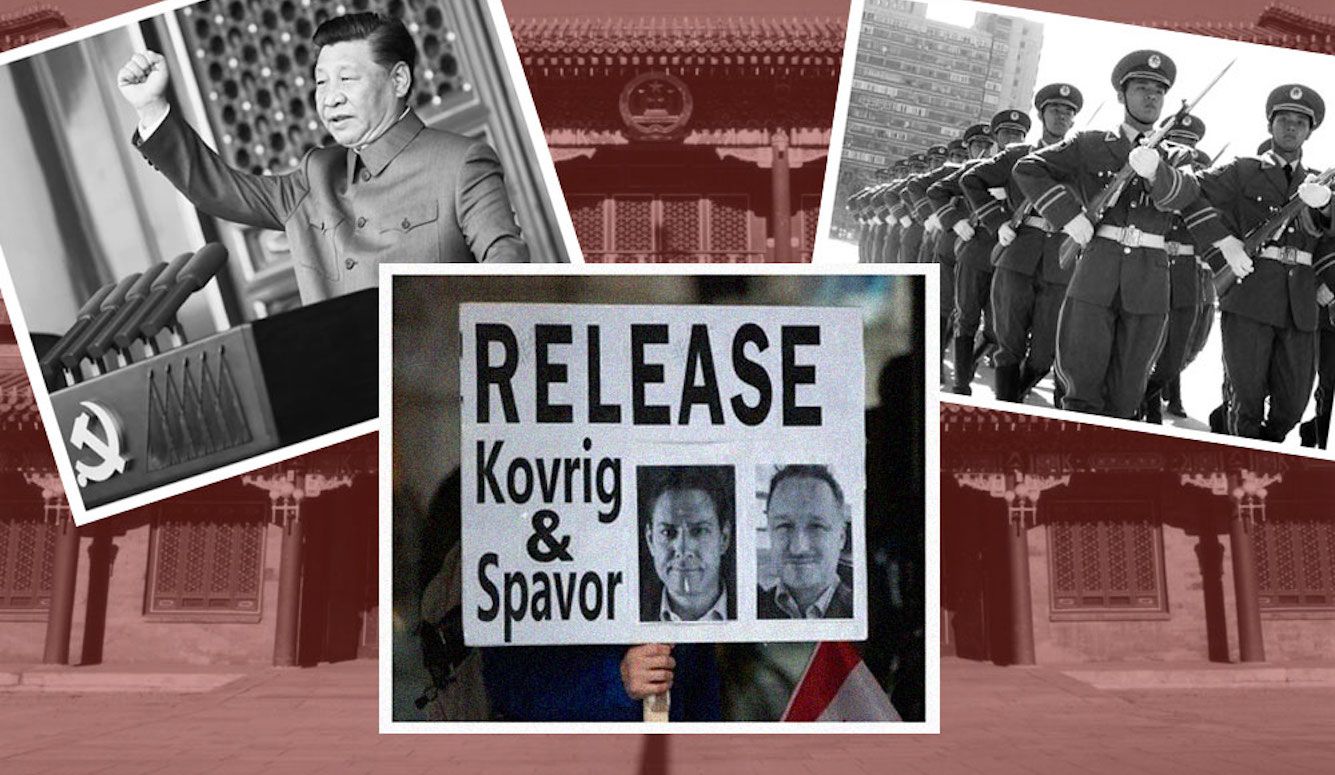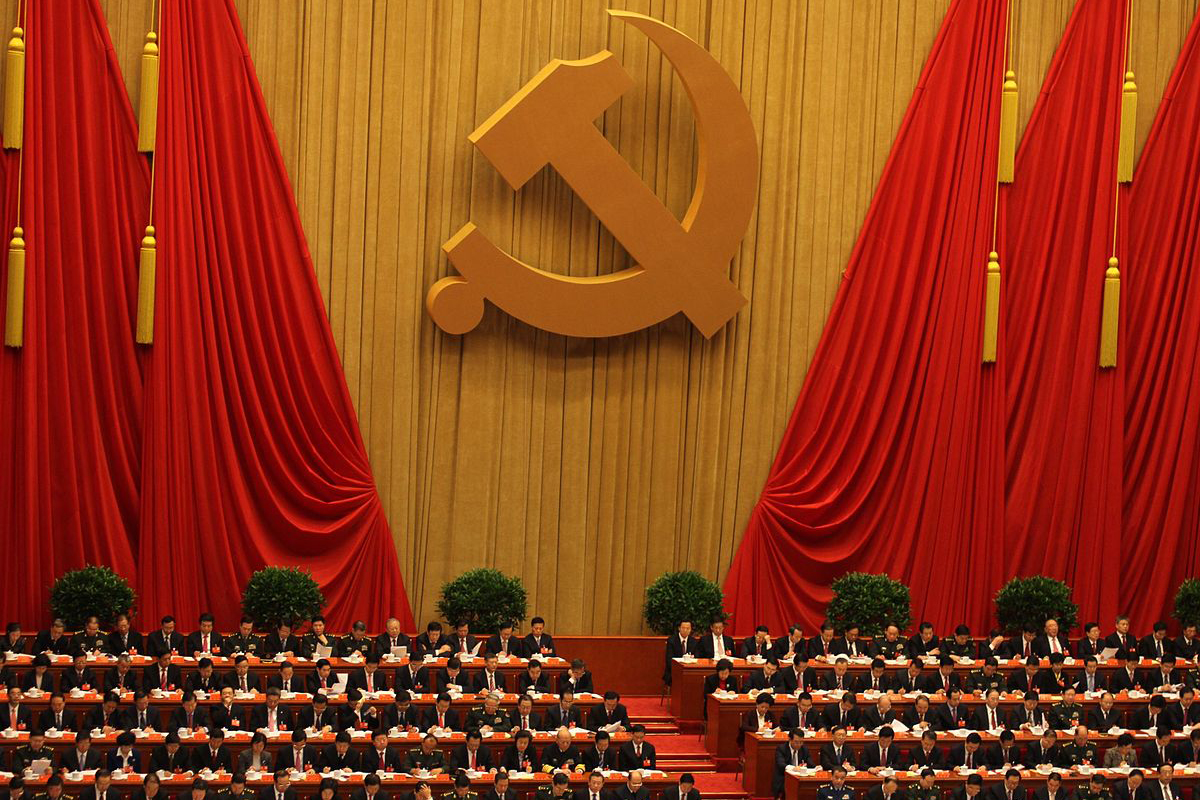World Affairs
Time for Less Long-Term Thinking About China
Normalization of US-Chinese diplomatic relations in turn led to the biggest exercise in corporate continence in American business history.

Today, an old friend and former colleague of mine, the Canadian diplomat and political analyst Michael Kovrig, will mark a horrifying milestone: 1,000 days in detention in a Beijing jail, held as a human bargaining chip. With the conviction last month on spurious espionage charges of another Canadian detained at the same time as Kovrig—the entrepreneur Michael Spavor, who was sentenced to 11 years in prison—and new allegations involving Kovrig in Chinese state media, there are now fears that both may be held indefinitely. It is a nightmare made real because of Beijing’s cynical decision to use the two as leverage in a dispute involving American efforts to extradite a well-connected executive of the Chinese telecom giant Huawei from Canada on sanctions-busting charges.
Unfortunately, even if the “Two Michaels” are soon freed, they will forever bear the scars of their long captivity at the hands of a regime infamous for its mistreatment of political prisoners. The isolation and stresses resulting from the COVID-19 pandemic have been overwhelming for many. My friend’s term in solitary confinement began a full year before the first reports of a strange new virus began emanating from the other side of China. A thousand days is a long time.
Meanwhile, if they are freed as part of a quid pro quo or larger settlement, China’s gambit will have succeeded, paving the way for more hostage-taking, or far worse. And not just in the long run.

It is a truism that China’s political class operates on a longer time horizon than those of the West, and for decades Westerners have likewise been encouraged to take the long view when thinking about China. Washington’s rapprochement with Beijing in the early 1970s was framed as a geostrategic chess move, an opening to an impoverished and chaotic rival of the West’s chief Cold War adversary that was brilliant simply because it was so farsighted. For years after the first secret meetings between Henry Kissinger and the Chinese leadership, China-watchers dined out on a line attributed to then-premier Zhou Enlai. Asked by Kissinger about the influence of the French Revolution, Zhou is reported to have replied, “It’s too early to say.”
Normalization of US-Chinese diplomatic relations in turn led to the biggest exercise in corporate continence in American business history. At the same time that they were focused intensely on quarterly earnings and short-term stock movements at home, executives like Goldman Sachs CEO (and later Treasury Secretary) Hank Paulson bragged about taking 50 or 100 trips to China just to lay the groundwork for future success.
Non-specialist elites and ordinary citizens have been encouraged to think about China in similarly long horizons. The Harvard political scientist Graham Allison’s popular 2017 book, Destined for War: Can America and China Escape Thucydides’s Trap?, put the epochal nature of the question in the subtitle, tying it to the great chronicler of the Peloponnesian War of fifth century BC Greece. The same goes for many China “hawks”; Trump advisor Michael Pillsbury claimed in his book, The Hundred-Year Marathon, that China had a secret plan to replace the US as global hegemon by 2049, the centenary of the founding of the People’s Republic. Even when scaremongering the shorter-term pitfalls of a rising China, the crisis always seems to be a decade or more off. This March, the much-admired retired US Admiral James Stavridis published a speculative novel about a global conflagration caused by an impulsive and expansionist China entitled 2034: A Novel of the Next World War.
While this atypical commitment to long-term thinking is in many ways admirable, modern China’s horizons, and the circumstances surrounding its rise to great power status, have in reality always been more short-term. Nixon and Kissinger correctly envisioned that China could become a strategic counterweight to the Soviet Union. But they certainly didn’t foresee that within little more than a decade the Soviet Union would dissolve, leaving China the most powerful actor in Eurasia. We also tend to forget that within months of the formal establishment of US-China diplomatic relations in 1979, Beijing launched a hasty ground invasion of Vietnam, in response to Hanoi’s move against the (China-allied) genocidal regime in Cambodia, and the inking of a mutual defense treaty with Moscow the previous year. And as Kissinger's translator later conceded, Zhou’s legendary quip was actually a legend; he was likely commenting on the upheavals that had shaken France not in 1789 but in 1968, little more than 1,000 days earlier.
China’s post-Mao economic transformation is also less of a methodical “long march” than it might appear. Its economic model has from the start put rapid current GDP growth and the maintenance of party control ahead of all other priorities, not least the ability of patient and law-abiding foreign firms operating in China to earn a return on their investment. As someone who covered emerging markets for several decades, I see no reason to assume that China figured out how to suspend the normal laws of economic development. The country’s now-abandoned “one-child” policy was a poorly considered response to a short-run problem, and its continued bet on coal is the very definition of a shortsighted industrial policy. Put simply, China’s rise from collectivized agrarian backwater to globalized industrial (and increasingly post-industrial) giant should have taken longer than the 40 years it did. The many shortcuts taken along the way to becoming the world’s largest economy—before the end of the decade in dollar terms, or already when measured by purchasing power parity—are likely to come back to haunt not just China but the entire world.
Beijing’s reaction to the West’s belated pushback against its toxic economic model also challenges the image of a leadership willing to make sacrifices in the service of long-term stability. Washington Post columnist Josh Rogin’s outstanding exposé Chaos Under Heaven: Trump, Xi, and the Battle for the Twenty-First Century paints a portrait of a reactive trade negotiating partner almost as focused on short-term loss aversion as a White House in thrall to the hourly news cycle.
If China has never been a land of philosopher-kings planning in millennia, today it is very much a country in a hurry, and in the worst possible way. The government’s repression of its restive citizens and regions has recently taken on a more frenetic character. I was in Hong Kong with US policymakers in 1997, when Beijing vowed to respect the city’s democratic institutions with a system of “one country, two systems” for 50 years, until 2047. While few at the time probably expected that pledge to hold for five decades, I doubt any foresaw it being summarily and violently abandoned in less than half that time. Out west, in Xinjiang Province, the murderous campaign against the Uyghurs and other Muslim minorities can be tracked by satellite images of bulldozers and construction crews working non-stop.
China’s response to the COVID pandemic has been similarly short-sighted, focused on containing the problem at home and hobbling inquiries into the pandemic's origins, despite the incalculably greater damage to its reputation if it turns out that such a lab accident or wet market spillover occurred but was then deliberately covered up. The scholars Philip Potter, Chen Wang, and Claire Oto recently called this compulsion to cover up bad news an “addiction to short-term thinking” on the part of the authorities. Even the seizure of Kovrig and Spavor seems to have been less a carefully-calculated “long game” than a hasty response to an immediate problem.
To paraphrase Zhou Enlai, it is also not too early to say that China’s current leadership is becoming increasingly impatient in its regional geopolitical ambitions. Its determination to assert sovereignty over much of the South China Sea—following and expanding on the so-called “nine-dash line” that reaches as far as the shores of Malaysia—has led to increasing tensions with countries throughout the region. Writing last month in Foreign Affairs, the analysts Bonnie Glaser and Gregory Poling were blunt: “China’s control over disputed waters is steadily growing, and the path to a resolution that all sides can live with is narrowing,” they wrote, stressing that “time is running out.” Just last week, China decreed that several classes of foreign ships entering “Chinese territorial waters”—meaning everything within the nine-dash line—will be required to provide detailed information to its maritime authorities.
As or more ominous is Beijing’s growing bellicosity towards Taiwan. The day after the publication in March of Admiral Stavridis’s book about a US war with China in 2034, it was revealed that Chinese President Xi Jinping had ordered the People’s Liberation Army to accelerate its timetable for developing the capability to invade the island republic, from 2035 to 2027.

As Xi was issuing his alarming directive I was by coincidence participating in an extended series of confidential negotiation exercises focused on key fault lines in the US-China relationship, as a non-specialist among several dozen China-focused professionals from both countries. Throughout the sessions I was struck not just by a sense that the China teams generally had more leverage and “optionality” than their American counterparts, even when I was put in the Kafkaesque position of advocating for Beijing’s seemingly weak position in the case of the Two Michaels. It was also hard to shake the feeling that over the course of just a few months the Chinese side became noticeably more bold.
I am optimistic that my friend’s life-defining ordeal will not last another three-and-a-half years. But I am terrified that within a similar period of time millions of others could end up hostage to a crisis caused by a growing impatience on China’s part to reclaim what it sees as its rightful role as a regional or global hegemon. Unjustly cut off from family and friends, a thousand days in captivity is an eternity. It is likewise time to start thinking about China’s challenge less in terms of decades or centuries, and more in weeks and days.






